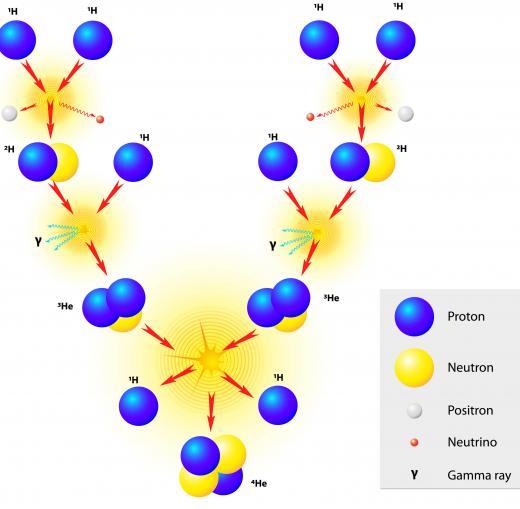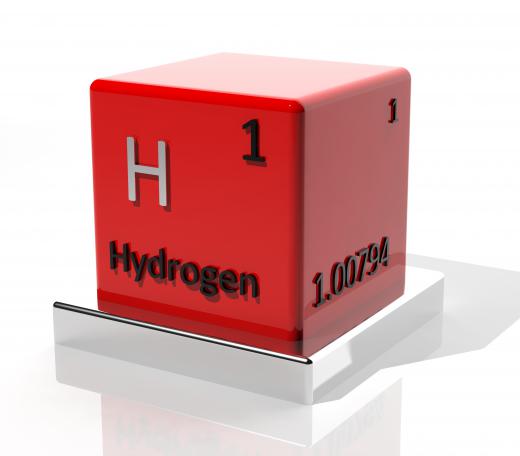What is Deuterium?
 Michael Anissimov
Michael Anissimov
Deuterium is an isotope of the chemical element hydrogen. Unlike normal hydrogen, which has one proton, deuterium has one proton and one neutron. This isotope is non-radioactive, and is found in small quantities wherever hydrogen is present. It is primarily used in nuclear fusion, as a moderator for fission reactors, and in nuclear magnetic resonance imaging.
For the most part, deuterium is chemically identical to regular hydrogen. It can substitute for hydrogen in chemical bonds, and most organisms can be successfully grown on high levels of deuterium. Deuterium oxide, called “heavy water,” does show some strange effects due to the isotope's extra mass; it is thicker than regular water, and an ice cube of heavy water will sink. Organisms that consume small amounts of heavy water are generally unaffected, but the extra mass causes a slight change in its bonding properties, and this can disrupt the biochemistry of a cell if too much heavy water is used.

Deuterium is extracted from seawater, where it is found at a concentration of around 300 ppm. It is very dilute, and so the extraction process is energy-intensive and expensive; 1 pound (0.4 kilograms) can cost hundreds of US dollars (USD). Due to its atomic mass, the isotope is a better neutron moderator than ordinary hydrogen, and deuterium oxide is used in some nuclear fission reactors, such as the CANDU design. Deuterium is also used in making nuclear bombs, and during WWII, the Allies bombed Germany's main deuterium plant to stop it from acquiring atomic weapons.

Most of the easy-to-achieve fusion reactions use deuterium as an ingredient, including deuterium-tritium, the current focus of artificial fusion research. Most of the isotope created inside a star is quickly fused again, and so the vast majority of the hydrogen in the universe either remains hydrogen, or is fused into heavier elements such as helium and carbon. Brown dwarfs, which never have a high enough core temperature to fuse ordinary hydrogen, can remain stable for a few million years by fusing their deuterium.
AS FEATURED ON:
AS FEATURED ON:













Discussion Comments
Don't think Deuterium is used in foods. We're not sterile (Deuterium can sterilize if consumed in large masses).
Is deuterium being used in food products?
So, does deuterium sink to the bottom of the ocean then? Is the water at the bottom or some midpoint of the ocean particularly deuterium rich?
When deuterium is combined with water, instead of creating H2O it forms D2O. Heavy water slows down growth of plants.
Snow for instance contains less heavy water then regular water does. As a result, in cold climates where there is a lot of snow, and therefore less of heavy water molecules, plants grow much faster during their growing season.
Post your comments